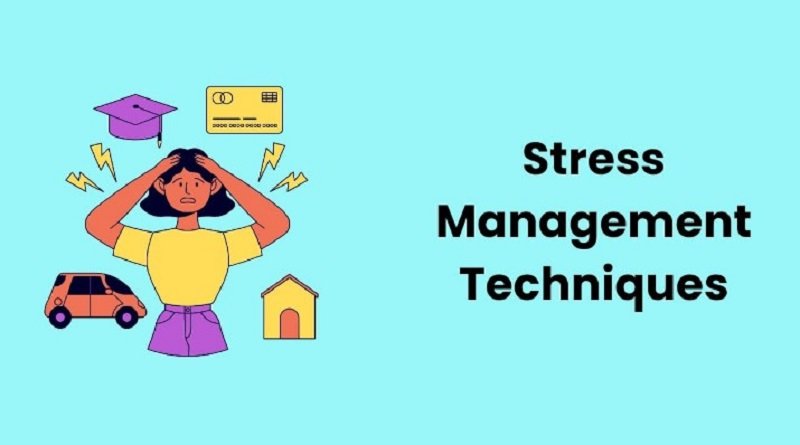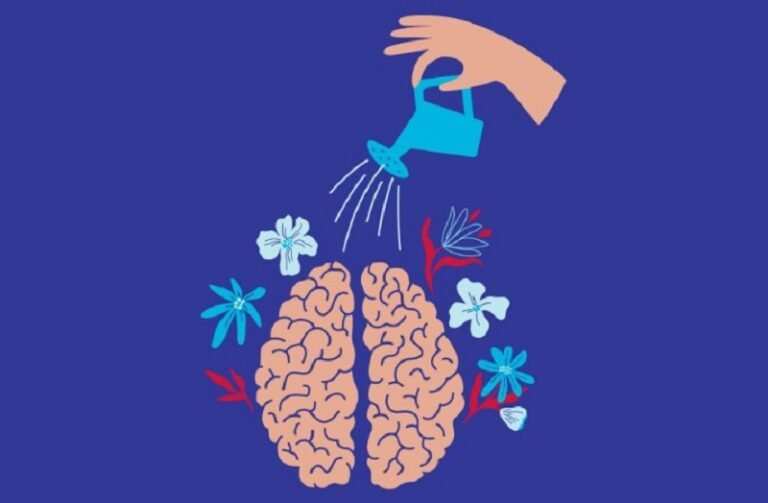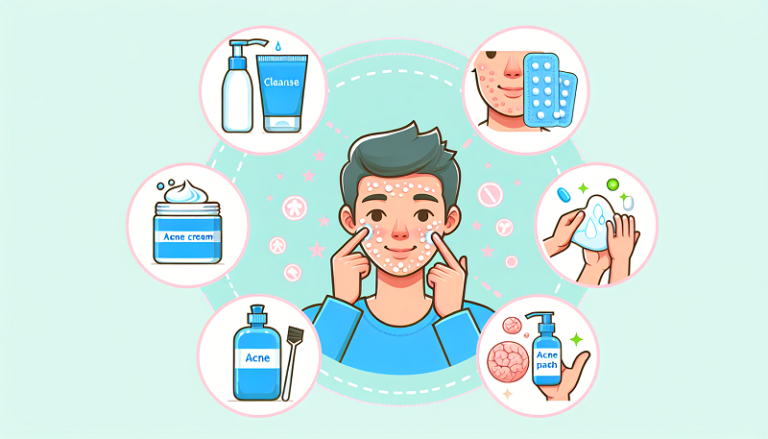Thriving Beyond Stress: Expert-Recommended Stress Management Techniques

Understanding Stress
So, you’ve got stress—who doesn’t, right? But give me a sec to break this down, so you know exactly what you’re dealing with and how it’s messing with your mind and body.
Types of Stress
Stress can be like that annoying hangnail—you can’t ignore it, but if you know what kind you’re dealing with, it gets easier to manage. Picture stress as coming in three handy-dandy flavors: acute, acute episodic, and chronic.
- Acute Stress: This is the kind that pops up because of sudden things, like when someone cuts you off in traffic or you have a tiny spat with your buddy. Most of the time, it goes away fast and might even give you a little boost to get stuff done.
- Acute Episodic Stress: Think of this as the stress that loves to crash your party. It shows up often for those who are juggling way too much—like deadlines flying at you from every direction or trying to be a superhero at work and home. This type can turn into nagging headaches or just make you feel on edge all the time.
- Chronic Stress: This one’s the nasty cousin that just refuses to leave. You get it from heavy-duty problems like being out of work for ages, stuck in a bad relationship, or family dramas that drag on. It’s hanging around long enough to really take down your health (Harvard T.H. Chan School of Public Health).
Effects of Chronic Stress
Chronic stress is like that leak under the sink—it’ll wreak havoc if not sorted out pronto. Being showered in stress hormones day in, day out brings on a whole bunch of issues.
- Physical Health Effects
- Cardiovascular Chaos: Keeping stress around can make your blood pressure rise, upping the chances of heart glitches like heart attacks.
- Digestive Drama: When stress lingers, it’s like letting a toddler loose in your stomach—causing unwanted chaos like tummy aches and acid reflux.
- Immune System Woes: If stress sticks closer than your shadow, it leaves you open to catching every bug going around.
- Mental Health Effects
- Anxiety & Blues: Chronic stress is good pals with both anxiety and depression, feeding them just what they need to thrive.
- Sleep Saboteur: It loves keeping your brain too busy for sleep, turning your nights into a battle with insomnia.
- Brain Fog: Stress overload isn’t kind to the brain, leaving it in a constant cloud, making you forgetful and indecisive.
- Nutritional Impact
- Metabolism Mayhem: The body’s fuel needs shoot up under stress, which can mess with nutrient levels unless you’re eating like a nutrition ninja (Harvard T.H. Chan School of Public Health).
- Weird Eating Habits: Stress can swing you between eating your emotions or simply not wanting to eat at all, leaving your general health in trouble.
For more tips on kicking stress to the curb, dig into articles on stress reduction techniques, coping strategies for stress, and relaxation exercises for stress.
Getting a grip on stress and its tricks is your first stride towards bringing balance back and keeping health in your corner. Dive into stress management activities to handle life like a pro.
Impact of Stress on Health
Stress can poke holes in your well-being, attacking your nutrition and overall health, especially when it hits you at work. Wrapping your head around these effects helps in keeping stress in check.
Stress and Nutrition
Living under constant stress messes with how you eat. When stress hits, your body’s hunger for nutrients skyrockets, and it pushes crucial vitamins and minerals out the door way too fast. Imagine your nutrition like a smartphone battery—the more apps you run, the faster it drains. Stress is like running all apps at once!
Stress messes with your eating habits like this:
- Cravings Galore: Especially for sugary, fatty snacks.
- Eating Swings: You might overeat or lose your appetite completely.
- Lazy Cooking Attitude: You might reach for quick fixes instead of healthier options.
Here’s a quick peek into how stress can shake things up:
| Nutrient | Stress Mode | Chill Mode |
|---|---|---|
| Calories burned | Off the charts | Balanced |
| Vitamin C | Drains in a flash | Normal usage |
| Vitamin B6 | Gone in no time | Normal usage |
| Zinc | Quick to disappear | Normal usage |
Eating foods that fight stress can help cushion its blow a bit. Keeping your diet diverse and nutritious can bolster your defenses against stress’s dirty tricks.
Workplace Stress and Health
For many young folks, work stress seems as regular as clockwork, poking health from every direction. A high-stress job might sap your health—not just your patience. We’re talking:
- Immune System Takes a Hit: Frequent colds could become your uninvited roommates when stress is high.
- Sleep Gone Sideways: Stress wrecks your sleep, making you toss and turn when you should be dreaming.
- Fight-or-Flight Riot: Chronic stress keeps you edgy, messing with your ability to relax.
For handling work stress, try some of these:
- Stick to a routine with regular meals and breaks.
- Sneak in some chill time with relaxation activities and self-care.
- Guard your sleep and stay active.
If you’re on the hunt for even more stress-beating tricks, check out our rundown on different stress management techniques.
Stress Management Techniques
Breathing Exercises
If you’ve ever found yourself spiraling into panic mode, give breathing exercises a shot. These quick, on-the-go techniques are like magic for anxiety and stress, and they don’t even cost a dime. Best part? You can do them anywhere—no need to jump into full-on meditation mode. Controlling your breathing can trick your body into chill mode, keeping those pesky cravings at bay and sparking your motivation (NHS, Kendall Reagan Nutrition Center, Harvard Health Publishing).
Breathing Styles to Try:
- Deep Breathing
- Diaphragmatic Breathing
- 4-7-8 Breathing Technique
Mindfulness and Meditation
Who knew that sitting there doing nothing could be so productive? Mindfulness does wonders—improves your sleep, makes work more tolerable, and keeps your stress in check. Give guided meditation or visualization a whirl, and you’ll find your mind more at ease. Try ’em anytime, anywhere, no fancy setup needed (Positive Psychology, Mayo Clinic).
Meditation Hits:
- Mindfulness Meditation
- Guided Meditation
- Visualization
Physical Activity as a Stress Reliever
Who doesn’t love a good endorphin rush? Channel your stress into sweating it out, and you’ll not only feel better but look better too. Whether it’s jogging down the street or kneading dough in the kitchen, those feel-good hormones will have you dancing through the rest of your day. Plus, it keeps your ticker in check and dials down your blood pressure (Mayo Clinic, Harvard Health Publishing).
Perks of Moving:
| Activity | Perk |
|---|---|
| Walking | Slashes anxiety, lowers pressure |
| Jogging | Boosts mood, endorphin-boosting |
| Weight training | Muscle power, self-esteem booster |
| Swimming | Eases tension, muscle soother |
| Yoga | Flexibility, stress-buster |
Wanna know more? Check out our piece on stress management activities.
Laughter Therapy
Laugh all your troubles away—no joke! Getting your giggle on can transform stress into sheer joy. Laughter is your ally, whether you are indulging in humorous television series or recalling that amusing joke you cherish. Even a fake laugh can work wonders, so go wild! Got some pals with a knack for making you laugh till it hurts? Hang with them too (Mayo Clinic).
Get Your Laugh On:
- Comedy Series Marathons
- Joke Swapping with Buddies
- Laughter Yoga Sessions
Ready for more ways to chill? Head over and explore coping strategies for stress and relaxation exercises for stress.
Lifestyle Changes for Stress Management
Alright folks, let’s talk about those little tweaks in life that can save our sanity and keep stress at bay.
Social Connections and Support
Lean on your people! Having a good circle of friends and family can work wonders for stress relief. When life throws curveballs, these folks can offer a helping hand and a listening ear. Join a club, chat over coffee, or even jump on a volunteer gig to hang out for a good cause. It’s all about creating a space where you let go of worries while boosting those feel-good vibes. They say laughter is the best medicine, and who better to share a few laughs with than your pals?
Journaling for Emotional Release
Grab that pen and let your musings flow. Writing down your thoughts can be surprisingly freeing. It’s like chatting with yourself—only you’re taking notes. Jotting down those thoughts can shine a spotlight on what stresses you out and how you might cope. Plus, flipping back through your entries can offer some perspective on how you’ve been handling things. So, grab a notebook and give your emotions a little room to breathe.
Self-Care and Stress Prevention
Put yourself first—it’s not just okay, it’s essential! Delving into activities that relax and unwind like yoga, deep breathing, or just catching some rays in the park can lower stress sky-high. Perhaps a massage, a soothing bath, or a good belly laugh at your favorite comedy is more your speed. The point is, treat yourself well, because you deserve it.
Check out our guide on managing stress through fun activities and explore a load of stress-buster techniques that will keep those good vibes rollin’.
| Activity | How It Helps |
|---|---|
| Deep Breathing | Eases tension, invites calm |
| Yoga | Balances body and mind |
| Mindfulness | Sharpens focus, chills you out |
| Nature Walks | Clears the head, lifts spirits |
Simple habits, big payoffs. By embracing these practices, even busiest bees out there can keep stress in check. Remember, recognizing what gets you riled and sticking to these habits can make a world of difference. For extra tips, take a gander at our article on stress coping tactics.
And hey, take care of you, everyone deserves a little slack cut, especially yourself!
Healthy Eating for Stress Management
Eating isn’t just about filling your belly—it’s kinda like giving your mind a helping hand too. What we chow down on can either be a stress superhero or an anxiety villain. Choosing the right foods might just make Netflix nights more relaxing and work deadlines less panic-inducing.
Stress-Busting Foods
Think of these stress-fighting foods like your best pals—they’re always there when things get tough. They won’t eliminate stress like poof, but they’ll help you handle it better:
- Fatty Fish
Fish like salmon and mackerel aren’t just tasty; they’re loaded with omega-3 fatty acids that can mellow out anxiety and lift your spirits. Pass the fish tacos. - Dark Chocolate
This isn’t permission to clean out the candy aisle, but a little dark chocolate goes a long way. It has stuff that boosts mood by getting more blood to your noodle (brain). - Avocados
Full of healthy fats and B vitamins, avocados are brain powerhouses. Think of them as green gold spread over toast. - Nuts and Seeds
Throw in some almonds or pumpkin seeds. They’re packed with magnesium and take down cortisol (stress hormone) like a pro. - Herbal Teas
Struggling with the Sunday Scaries? A cup of chamomile or green tea can be as comforting as a soft blanket on a cold night.
Foods to Avoid for Stress Management
Time for the bad news—some foods are more like frenemies that whisper stress in your ear. Keep these at bay:
- Caffeine
Need a coffee to wake up? Just know it might also wake up those jittery feelings too—a double espresso isn’t always your pal. - Alcohol
It might seem like a stress-buster but ends up being a sleep disrupter, and having a clear head in the morning is a pretty big deal. - High-Sugar Foods
These create a sugar coaster ride—up, then down—and nobody needs extra drama. - Processed Foods
They might be convenient, but they bring the blues. Opt for something that doesn’t come from a vending machine.
| Food Type | Effect on Stress |
|---|---|
| Caffeine | Cranks up anxiety |
| Alcohol | Messes with sleep |
| High-sugar foods | Chaos for blood sugar |
| Processed foods | Dips mood |
Impact of Stress on Eating Behaviors
Stress and eating—they have a weird relationship. Stress can mess up your meal game, causing you to reach for the cookie jar or shy away from the kitchen altogether (Kendall Reagan Nutrition Center).
- Cravings
Stress can nudge you to stock up on ice cream. Recognizing this can help you slam the brakes on those snack attacks. - Overeating or Undereating
Both can throw health outta whack. Keeping tabs on munching habits can keep you on a healthier track. - Lack of Motivation
Stress can zap energy, making you go, “meh” to cooking or working out. Getting ahead with meal plans can be a lifesaver.
Get more smart moves for chilling out with our posts on stress reduction techniques, coping strategies for stress, and relaxation exercises for stress.
Strategies and Techniques for Stress Relief
In the tumultuous journey of life, stress appears to be an ever-present and unwelcome companion. Lucky for us, there’s a toolbox full of tricks to keep stress in check. Let’s talk about figuring out what sets off your stress, some top-notch ways to chill out, and how to live the good and healthy life.
Identifying Stress Triggers
Step one in this whole stress-busting mission involves figuring out what’s setting off your alarm bells like a malfunctioning smoke detector. Once you nail down those stress triggers—be it the pile of work documents that seems to multiply like rabbits, those numbers in your bank account for which there aren’t any cheerful emojis, or even the daily soap opera of your relationships—you can start tackling them head-on. Here’s what typically sets folks off:
- Those Monday morning meetings and other work stuff
- The End-of-the-month blues about what’s in your wallet
- Your partner’s socks lying around (or deeper relationship stuff)
- Health hiccups that make you feel off your game
To grab those elusive stress triggers by the horns, start jotting down when you feel like you might explode, what goes down, and how it turns out. Later, you might spot some “aha” moments through the chaos. Want more tips and tricks? Jump over to coping strategies for stress.
Stress Management Practices
Alright, so now that you’re onto your stress’s shady dealings, it’s time to kick them to the curb. There are some rock-solid ways to keep your cool, tipped by the pros:
- Breathing Exercises: Forgetting to breathe? Not on my watch! Take slow, deep breaths and feel the stress melt.
- Mindfulness and Meditation: Train your brain to focus and say “see ya” to stress.
- Yoga and Tai Chi: Feel the stretch, and let your mind relax like a gently flowing river.
- Nature Therapy: Green trees and blue skies are there for a reason—get out there and reset.
Folks over at Mayo Clinic reckon things like a good rubdown, loud sing-along showers, or some pretty dope tunes are your best stress bosom buddies. Check out some relaxation exercises for stress for more good vibes.
Maintaining a Healthy Lifestyle
Living life to the fullest means prioritizing your health. This includes making smart food choices, staying active, getting enough sleep, and perhaps reducing those late-night Netflix marathons. It’s no joke when they say avoiding alcohol or pills during stressful times is important—though indulging in a delicious milkshake can certainly lift your spirits!
Key Lifestyle Factors
| Lifestyle Factor | Recommendation |
|---|---|
| Diet | Munch on the rainbow—fruits, veggies, whole grains, the whole shebang. |
| Exercise | Whether dancing or jogging, get at it for about two and a half hours a week—or break a sweat for an hour and a half. |
| Sleep | Clock in 7-9 hours, dream sweet, and tackle stress like a champ. |
| Screen Time | How about a pre-sleep tech detox? Your brain will thank you. |
Early clues suggest that blending stress-busting routines with some good ol’ exercise can help dodge the slump in physical activity that stressful days might bring (NCBI). For a treasure trove of tips on keeping life’s rollercoaster stable, hop on over to stress management activities.
With these tools at your disposal, young go-getters like yourself can stare stress in the face and come out swinging with more peace and fewer gray hairs.
Relaxation Techniques for Stress Relief
Guided Imagery
Guided imagery is like taking a mini-vacation without leaving your chair. It’s about picturing a soothing place to chill out your mind. You can do this solo style or with some background help, like a recording. Imagine drifting away to your “happy place,” and find that inner calm you’ve been craving.
To try guided imagery:
- Pick a quiet hangout spot.
- Get comfy, either sitting or laying down.
- Shut your eyes and breathe deep.
- Picture a tranquil scene (maybe a beach, the mountains, or a sunny field).
- Really feel it – hear the waves, sense the breeze, the whole shebang.
Progressive Muscle Relaxation
Progressive muscle relaxation (PMR) is another chill-out hack where you untangle those knots in your muscles, one at a time, head to toe. It’s all about getting in touch (literally) with your tension and letting it go, feeling lighter with each step.
Steps to PMR:
- Cozy up in a comfy spot.
- Close your eyes and breathe easy.
- Start with your forehead – tense those muscles lightly for 5 seconds.
- Let the tension go, and relax for about 10 seconds.
- Move to the next spot (like your shoulders), and do the same thing.
- Keep going down through your body, right to your toes.
Physical Touch for Stress Reduction
Hugs aren’t just for warm fuzzies – they’re a powerhouse for stress-busting. A good embrace with a loved one kicks up oxytocin, the “cuddle chemical,” which ups your happiness, chills out stress, and even helps lower blood pressure. It’s a win-win deal for everyone involved.
Why physical touch rocks:
- It boosts oxytocin, your feel-good hormone.
- It cuts down cortisol, the stress-maker.
- Sinks your blood pressure.
- Brings on that comforting, safe feeling.
Mixing these chill-out techniques into your daily routine can really give your well-being a boost. For more tips and tricks, check out our special section on relaxation exercises for stress.
Exercise for Stress Relief
Exercise is a major player in the game of shaking off stress. It’s got both your body and your noggin covered, helping you unwind and find your happy place. This piece of the pie dives into several stress-busting exercises: think heart-pumping activities, chill-out routines, and muscle tension breakers.
Benefits of Aerobic Exercise
Getting your sweat on with aerobic exercise can really work magic. It boosts your mood, sorts out your body’s inner workings, supports your heart, and basically helps you keep your cool, even kicking gloom to the curb.
| Benefits of Aerobic Exercise | Details |
|---|---|
| Bye-Bye Stress Hormones | Knocks down adrenaline and cortisol levels |
| Hello, Happy Chemicals | Cranks up endorphins, your body’s built-in mood boosters |
| Feel-Good Waves | Say hello to that “runner’s high”—pure joy and positivity |
Studies back it up—hitting the trail or treadmill is a solid strategy for tackling anxiety and depression (Harvard Health Publishing). For more lowdown on working away stress, check out our deep dive articles.
Autoregulation Exercises
These exercises are about leveling out your state of being—they’re like your mental reset button. Breathing drills, muscle ease-outs, and the classic meditation all serve up the good vibes, shoving stress out the door.
| Autoregulation Techniques | Description |
|---|---|
| Deep Breathing | Tune your breath to summon calmness |
| Muscle Relaxation | Tighten, then let go of muscle groups to relax |
| Meditation | Quiet the mind and shoo away tension |
Even just breathing calmly does wonders for stress control (Harvard Health Publishing). Peek at our guide on calming exercises for stress for more treats.
Progressive Muscular Relaxation
Progressive muscular relaxation (PMR) is where you get all Zen with your muscles—tensing ’em up, then letting go. It fixes your focus on how your body feels, driving out mental stress.
| Step | Action |
|---|---|
| 1 | Tense up a spot, like your shoulders, for around 5-10 seconds |
| 2 | Slow-release that tension |
| 3 | Savor the calmness in the muscle for 10-20 seconds |
PMR comes in clutch for calming anxiety and can become part of your daily chill routine.
Role of Physical Activity in Stress Management
Moving your body holds a big piece of the stress-busting puzzle. Mix stress management tactics with a bit of sweat to stave off stress-induced activity slumps (National Center for Biotechnology Information).
Hitting the gym or track reduces stress makers like adrenaline and cortisol, while firing up endorphins—those happiness hormones that bring on relaxation and cheer (Harvard Health Publishing). For more ways to tackle stress, pop over to stress-handling tricks.
Adding various workouts to your lifestyle helps balance stress and enhances your happiness. Whether you’re in for some cardio, find bliss in soothing techniques, or unwind with muscle relaxation, exercise serves a practical punch to stress. Dive into our treasure trove on finding peace through exercise.






